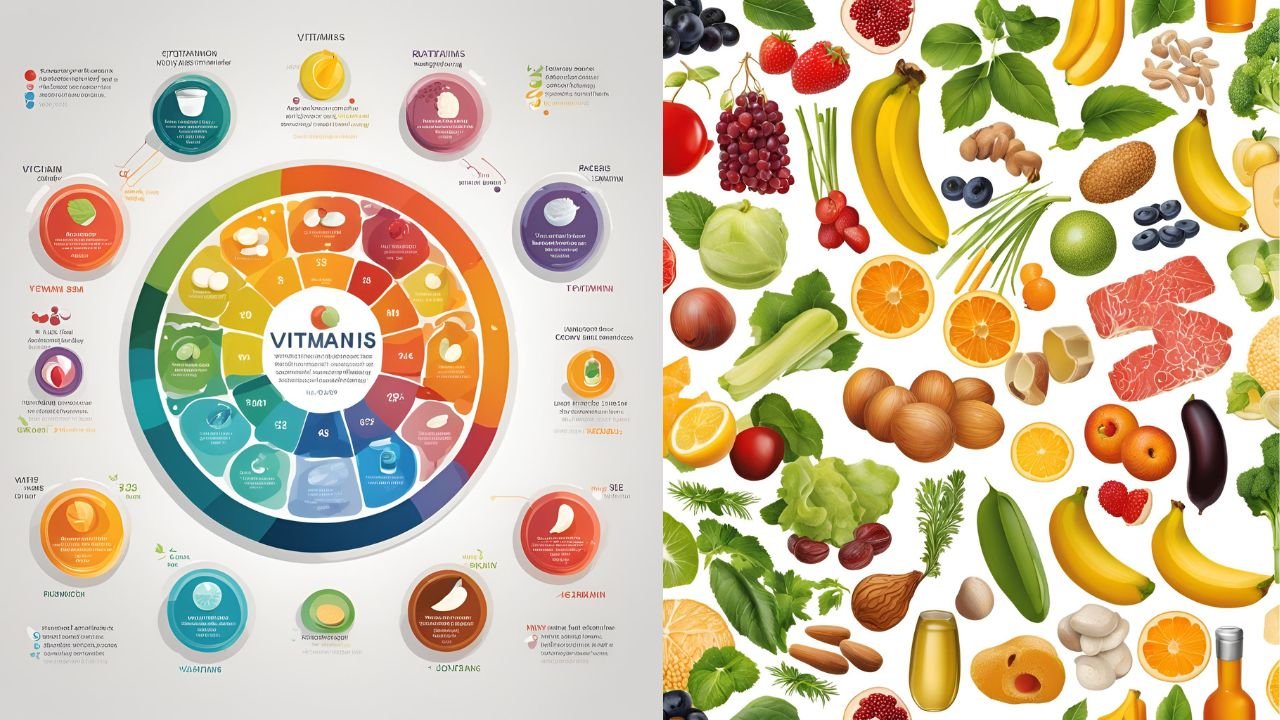
preface:
The Liquid Vitamin Myth
Vitamins are essential nutrients that our bodies need to serve optimally. Over the times, vitamins have come a multibillion- bone assiduity, with supplements available in colorful forms, including tablets, capsules, maquillages, and liquids. Among these, liquid vitamins have garnered adding attention, frequently retailed as being more effective than their lozenge counterparts. But is there any verity to these claims, or are liquid vitamins just another health style? In this composition, we’ll explore the myths girding liquid vitamins, uncovering the data and addressing common misconceptions.
1. Understanding Vitamins and Their significance

Vitamins play a critical part in maintaining health. They’re divided into two orders
- Water-answerable vitamins : These include vitamin C and the B-complex vitamins, which must be replenished regularly as they are not stored in the body.
- Fat-answerable vitamins : These include vitamins A, D, E, and K, which are stored in the body’s adipose apkins and liver, taking lower frequent input.
- Vitamins help support everything from metabolism to vulnerable function. still, due to life and salutary choices, numerous people turn to supplements to insure they’re meeting their nutritive requirements.
2. What Are Liquid Vitamins?
The Liquid Vitamin Myth
Liquid vitamins are supplements that come in a liquid form rather than capsules or capsules. They can be consumed directly, added to food or potables, or taken with a dropper. Manufacturers of liquid vitamins frequently claim that these products offer better immersion rates and are easier to take for people who have difficulty swallowing capsules.
3. The Myth Are Liquid Vitamins More Effective?

The Liquid Vitamin Myth One of the most common myths girding liquid vitamins is that they’re superior to capsules or capsules in terms of immersion and effectiveness. Proponents claim that since liquids bypass the digestive process and enter the bloodstream more snappily, they offer lesser bioavailability. But is this scientifically accurate?
- The wisdom of immersion : Bioavailability refers to the degree and rate at which a substance is absorbed into the bloodstream. While it’s true that liquid vitamins may be absorbed briskly, there’s limited scientific substantiation to suggest that this leads to significantly better issues.
- Solid supplements like capsules and tablets dissolve in the stomach before being absorbed in the bowel. For utmost people, this process happens efficiently, meaning the body can still absorb the nutrients from these forms. likewise, fat-answerable vitamins bear salutary fats to be absorbed duly, anyhow of whether they’re taken in liquid or solid form.
- No Significant Edge for Liquid Vitamins : Research has shown that both liquid and lozenge forms of vitamins can give the necessary nutrients effectively. Any claims that liquid vitamins are widely better should be viewed distrustfully. Individual digestive issues or health conditions may affect immersion, but for utmost healthy individualities, there’s no substantial advantage to choosing liquid vitamins over traditional forms.
4. The Convenience Factor capsules vs. Liquid Vitamins
The Liquid Vitamin Myth
Another common belief is that liquid vitamins are more accessible than capsules. This can be true for certain individualities
- People with difficulty swallowing capsules : Liquid vitamins can be easier to consume for senior individualities, children, or those with medical conditions that make swallowing delicate.
- malleable lozenge : Liquid vitamins allow for more precise adaptations in lozenge, which can be useful in specific medical scripts. still, for numerous, capsules and capsules are still more accessible. They’re movable , tasteless, and can be fluently integrated into diurnal routines. In discrepancy, liquid vitamins frequently need refrigeration and can have strong flavors that some people find unwelcome.
5. The Shelf Life of Liquid Vitamins
The Liquid Vitamin Myth
One strike of liquid vitamins is their shorter shelf life. Exposure to light, air, and heat can degrade the energy of vitamins over time, and liquid phrasings are more susceptible to this breakdown compared to solid forms. capsules and capsules tend to be more stable and have a longer shelf life, making them a more dependable option for long- term use.
6. The Cost Factor Are Liquid Vitamins Worth the Price?
The Liquid Vitamin Myth
Liquid vitamins are frequently more precious than their lozenge counterparts. Part of this is due to the fresh processes involved in manufacturing and packaging, but some of it comes from marketing claims that liquid vitamins are superior. Given that there’s little substantiation supporting the notion that liquid vitamins are more effective, it’s worth questioning whether the added cost is justified. For individualities on a budget, standard vitamins in lozenge or capsule form may give the same health benefits without the exaggerated price label.
7. Addressing Common Myths About Liquid Vitamins

Myth 1 Liquid Vitamins Are fully Natural : Not all liquid vitamins are natural. numerous are filled with artificial preservatives, sweeteners, and flavors to enhance taste and extend shelf life. Always check the component list to insure that the product is free from unwanted complement’s.
Myth 2 Liquid Vitamins Are Free from paddings : While it’s true that some capsules contain paddings and binders, liquid vitamins frequently contain other compliments that serve as preservatives or emulsifiers. These are necessary to maintain the integrity of the liquid but aren’t always bared transparently on markers.
Myth 3 Liquid Vitamins Are Absorbed incontinently : While liquid vitamins may enter the bloodstream more snappily, this doesn’t always mean that they’re absorbed in lesser quantities or more efficiently. The body still needs time to reuse and metabolize the nutrients, and other factors like digestive health can impact immersion anyhow of form.
8. Who Should Consider Liquid Vitamins?
Though the average person may not need to choose liquid vitamins over capsules, there are some who may profit from liquid supplements Children and the senior These groups may find it easier to take liquid vitamins due to difficulties with swallowing capsules.
People with digestive issues Those with certain gastrointestinal conditions, similar as Crohn’s complaint, may have trouble absorbing nutrients from capsules and could profit from liquid supplements. Those taking specific tablets For people who need more precise dosing, liquid vitamin myth can be acclimated more fluently than capsules.
9. The part of Diet in Vitamin Input
It’s essential to flash back that the stylish way to gain vitamins is through a well- balanced diet. Whole foods contain a wide variety of vitamins, minerals, and other salutary composites that supplements can not replicate. For utmost people, a diet rich in fruits , vegetables , spare proteins, and whole grains will give sufficient nutrients, making supplementation gratuitous unless there’s a specific insufficiency.
10. Liquid Vitamins Pros and Cons
- Pros
- Easier to swallow for some individualities
- Faster immersion( in specific cases)
- malleable tablets
- Ideal for individualities with digestive conditions
- Cons
- Advanced cost
- Shorter shelf life Susceptible to declination from light, air, and heat
- May contain unwanted preservatives or sweeteners
- No clear substantiation of superior immersion or efficacy.
Conclusion
The Truth Behind Liquid Vitamins The notion that liquid vitamins are innately better than their lozenge or capsule counterparts is largely a myth. While there are situations where liquid vitamins may be salutary, for the maturity of people, there’s no significant difference in effectiveness or immersion. It’s essential to estimate individual requirements and consult with a healthcare professional before choosing a supplement form. Eventually, supplements, whether liquid or solid, should round — not replace — a nutritional diet. When possible, concentrate on getting your vitamins and minerals from whole foods, and view supplements as a probative measure for specific health requirements.



![NZ v AUS [W] 2024/25, New Zealand Women vs Australia Women 2nd ODI, Wellington Match Report, December 21, 2024 NZ v AUS [W] 2024/25, New Zealand Women vs Australia Women 2nd ODI, Wellington Match Report, December 21, 2024](https://i3.wp.com/img1.hscicdn.com/image/upload/f_auto/lsci/db/PICTURES/CMS/393400/393416.6.jpg?w=1200&resize=1200,0&ssl=1)




